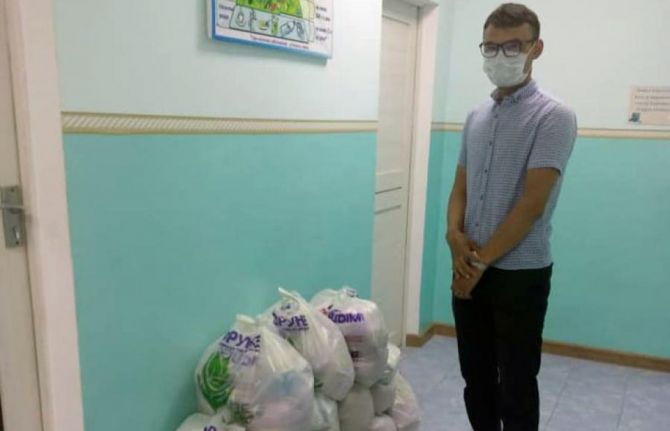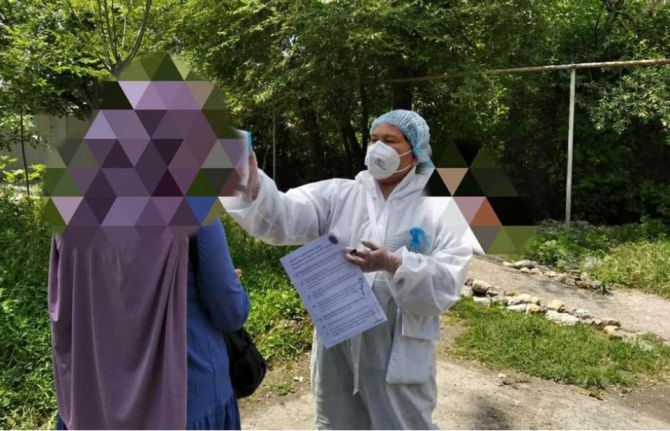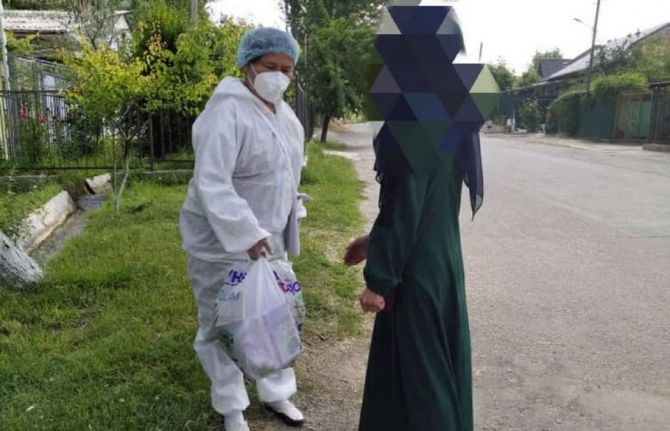



Feature Story
Peer consultants helping the AIDS response in Kyrgyzstan
10 June 2020
10 June 2020 10 June 2020When the son of Kymbat Toktonalieva (not her real name) was finally diagnosed with HIV after numerous visits to the hospital over many months, it was only the beginning of the fight.
Her husband left her, leaving her to look after their child on her own. She fought for her son and his rights, for justice. She went to court, attended rallies, wrote letters, worked with other like-minded people and helped other women in the same situation.
For the past six years, Ms Toktonalieva has channelled that campaigning zeal into working as a peer consultant in a multidisciplinary team in a family medical centre in Osh, Kyrgyzstan, helping people living with HIV to get services, providing support and motivating them to adhere to their HIV treatment. There are 10 multidisciplinary HIV teams in the country, which were formed by UNAIDS in 2013; they all include a specialist in infectious diseases or a family doctor, a nurse and peer consultants.
The peer consultants come from the same environments and backgrounds as the people who they work with and have faced similar problems. They may be people who are living with HIV or people who have been affected by HIV. They have decided to act, helping themselves and others, often serving as a bridge between the medical workers and people living with HIV.
“Working as a peer consultant has given me an opportunity to help people to overcome their problems, many of which I have come across myself in the past,” said Ms Toktonalieva.
The peer consultants work with the medical staff, directing, prompting, helping, talking and listening. They are trained to be non-judgemental and help people who have recently been diagnosed as HIV-positive to accept their status and to learn to live with the virus.
The role of the peer consultants is being expanded by the COVID-19 pandemic. From the very beginning of the pandemic they were in contact with people living with HIV, delivering medicine to people’s homes so they could stay on treatment during the lockdown, distributing food packages and providing psychological support.
Another peer consultant, Kalmurza Asamidinov, who works in Kyzyl-Kiya, said, “My work brings good, but I can’t say that everything works out perfectly. We work with different people. Some need to be persuaded to adhere to their HIV treatment because they don’t believe in the treatment, while others are tired of taking antiretroviral therapy—we have to find a different approach for everyone. People are increasingly in need of simple human communication. Many clients miss mutual help and the support groups, which we cannot provide during the COVID-19 lockdown.”
The peer consultants working in the 10 multidisciplinary teams each have a different story to tell. Mannap Absamov, one of the peers in the multidisciplinary team in Osh, said, “Initially it was difficult. We were not able to understand the medical staff, and they could not understand us. But slowly we found points of contact. The main thing is that almost simultaneously, both on our side and the doctors’ side, there became a clear understanding that we all have one goal. It is important that their patient and our client go to the medical facility and start getting treatment.”
Both during COVID-19 and after, one thing is certain—peer consultants will continue to play a vital role in bringing HIV services to people living with HIV in Kyrgyzstan.
Our work
Region/country
Related
 Women, HIV, and war: a triple burden
Women, HIV, and war: a triple burden

12 September 2025
 Displacement and HIV: doubly vulnerable in Ukraine
Displacement and HIV: doubly vulnerable in Ukraine

11 August 2025

